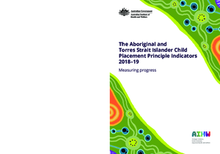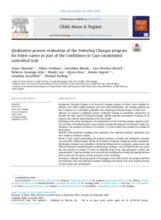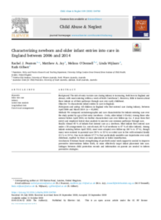Displaying 281 - 290 of 2221
Drawing on a review of recent international literature, this article argues for the first time that an understanding of, and engagement with, the theory and practice of friendship is essential to working alongside those who have care experience.
This study aims to examine the prevalence of overdose and the association with child removal in a cohort of marginalised women.
This systematic review synthesizes information about the relationships aging out foster youth have with their birth or stepparents after legally mandated separations in foster care.
This systematic review synthesizes information about the relationships aging out foster youth have with their birth or stepparents after legally mandated separations in foster care.
This report brings together the latest state and territory data on 5 Aboriginal and Torres Strait Islander Child Placement Principle (ATSICPP) indicators that measure and track the application of the Placement and Connection elements of the ATSICPP.
The purpose of this study was to conduct a qualitative process evaluation drawing on stakeholder perspectives to describe the logic model of Fostering Changes, identify potential mechanisms of impact of the program and enhance understanding of the trial results.
This article deals with the issues of family assistance from the perspective of working with the biological family of a child placed in foster care.
The purpose of this study was to characterize infant entries to care in England.
This study evaluates the association between children placed in out-of-home care and neighborhood-level factors using eight years of administrative data.
In this study, educational outcomes for 68 children (aged 3–9 years) in foster-care due to concerns about abuse or neglect were compared to those for 166 children with current or past child welfare involvement living at home.



